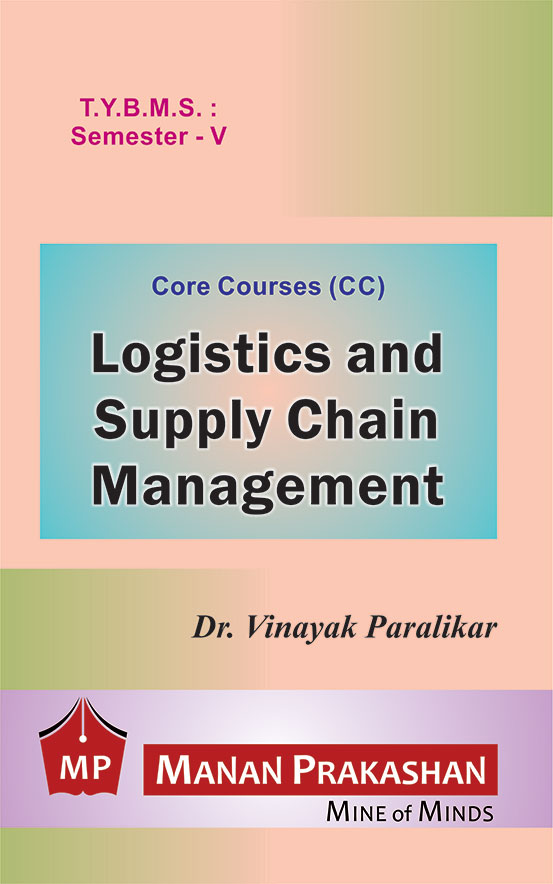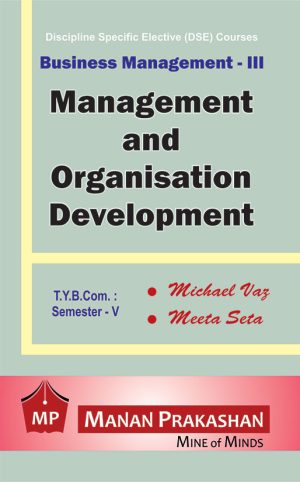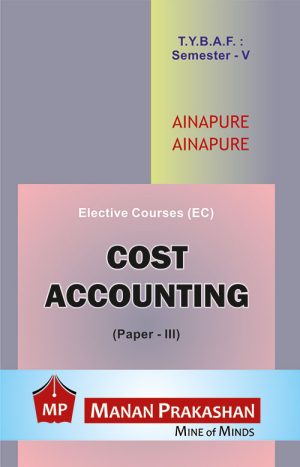Description
Logistics and Supply Chain Management
TYBMS Semester V
Syllabus
1. Overview of Logistics and Supply Chain Management (15 Lectures)
(a) Introduction to Logistics Management
♦ Meaning, Basic Concepts of Logistics – Logistical Performance Cycle, Inbound Logistics, Inprocess Logistics, Outbound Logistics, Logistical Competency, Integrated Logistics, Reverse Logistics and Green Logistics
♦ Objectives of Logistics, Importance of Logistics, Scope of Logistics, Logistical Functions / Logistic Mix, Changing Logistics Environment
(b) Introduction to Supply Chain Management : Meaning, Objectives, Functions, Participants of Supply Chain, Role of Logistics in Supply Chain, Comparison Between Logistics and Supply Chain Management, Channel Management and Channel Integration
(c) Customer Service : Key Element of Logistics : Meaning of Customer Service, Objectives, Elements, Levels of Customer Service, Rights of Customers
(d) Demand Forecasting : Meaning, Objectives, Approaches to Forecasting, Forecasting Methods, Forecasting Techniques, (Numerical on Simple Moving Average, Weighted Moving Average)
2. Elements of Logistics Mix (15 Lectures)
(a) Transportation : Introduction, Principles and Participants in Transportation, Transport Functionality, Factors Influencing Transportation Decisions, Modes of Transportation – Railways, Roadways, Airways, Waterways, Ropeways, Pipeline, Transportation Infrastructure, Intermodal Transportation
(b) Warehousing : Introduction, Warehouse Functionality, Benefits of Warehousing, Warehouse Operating Principles, Types of Warehouses, Warehousing Strategies, Factors Affecting Warehousing
(c) Materials Handling : Meaning, Objectives, Principles of Materials Handling, Systems of Materials Handling, Equipments Used for Materials Handling, Factors Affecting Materials Handling Equipments
(d) Packaging : Introduction, Objectives of Packaging, Functions / Benefits of Packaging, Design Considerations in Packaging, Types of Packaging Material, Packaging Costs
3. Inventory Management, Logistics Costing, Performance Management and Logistical Network Analysis (15 Lectures)
(a) Inventory Management : Meaning, Objectives, Functions, Importance, Techniques of Inventory Management (Numericals – EOQ and Reorder levels)
(b) Logistics Costing : Meaning, Total Cost Approach, Activity Based Costing, Mission Based Costing
(c) Performance Measurement in Supply Chain : Meaning, Objectives of Performance Measurement, Types of Performance Measurement, Dimensions of Performance Measurement, Characteristics of Ideal Measurement System
(d) Logistical Network Analysis : Meaning, Objectives, Importance, Scope, RORO / LASH
4. Recent Trends in Logistics and Supply Chain Management (15 Lectures)
(a) Information Technology in Logistics : Introduction, Objectives, Role of Information Technology in Logistics and Supply Chain Management, Logistical Information System, Principles of Logistical Information System, Types of Logistical Information System, Logistical Information Functionality, Information Technology Infrastructure
(b) Modern Logistics Infrastructure : Golden Quadrilateral, Logistics Parks, Deep Water Ports, Dedicated Freight Corridor, Inland Container Depots / Container Freight Stations, Maritime Logistics, Double Stack Containers / Unit Trains
(c) Logistics Outsourcing : Meaning, Objectives, Benefits / Advantages of Outsourcing, Third Party Logistics Provider, Fourth Party Logistics Provider, Drawbacks of Outsourcing, Selection of Logistics Service Provider, Outsourcing – Value Proposition
(d) Logistics in the Global Environment : Managing the Global Supply Chain, Impact of Globalisation on Logistics and Supply Chain Management, Global Logistics Trends, Global Issues and Challenges in Logistics and Supply Chain Management






Reviews
There are no reviews yet.